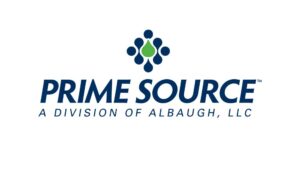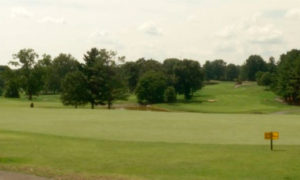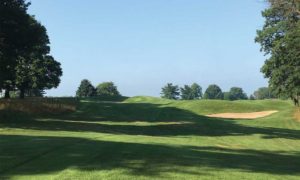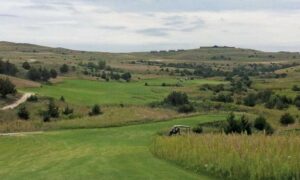The Indian Oaks Golf Club closed Friday, but the director of the Saks course said he and a group of investors hope to reopen the facility in about two weeks.
Ron McClellan said the news of the closure came as a surprise to him, but he is putting together a business plan to purchase the golf course, which covers more than 50 acres.
“For the last three months, we’ve worked pretty diligently, and I don’t want to let it go,” he said.
Lewis Roberts, who was leasing Indian Oaks from owner Jere Mason, declined to comment about the closure, and efforts to reach Mason were unsuccessful.
Reached by phone Friday, Cory Etter, the golf professional and general manager of Pine Hill Country Club said Roberts had invested a lot of money and time trying to revitalize Indian Oaks.
“If that’s the case, I hate that for him,” Etter said of the closure.
According to county tax records, Indian Oaks opened in the late 1960s, and Mason bought the site in the 1990s.
Etter said golf courses around the country have struggled as the industry has experienced a steep decline over the last several years.
“Some people just think there’s no hope for the golf business, but I disagree,” he said.
According to Etter, the golf course industry has seen improvement in the last year.
Since August 2013, he said, Pine Hill has grown from 76 members to 200. Besides dedicated owners and a great staff, Etter said, the club has grown by offering frequent events as well as amenities such as a pool and several lakes in which members can fish.
“You have to make it more family oriented,” Etter said.
Mark Langner, a past president of the Alabama Golf Course Superintendents Association, said the number of golf courses in America peaked in the 80s and 90s.
“We oversupplied and the demand did not meet that supply,” he said.
That’s when many golf courses began closing, he said. And the Great Recession only worsened those effects.
The courses that have held on have put an emphasis on efficiency – managing their water systems better, using less fertilizer and tracking the work done on the greens.
Langner said it’s hard to say whether the health of the industry is cyclical, but he believes it will improve alongside the economy.
“I think we have to find what the balance is,” he said.
Original Story: http://www.annistonstar.com/business/article_1d502ee8-52a7-11e4-831f-db652caccb92.html




















